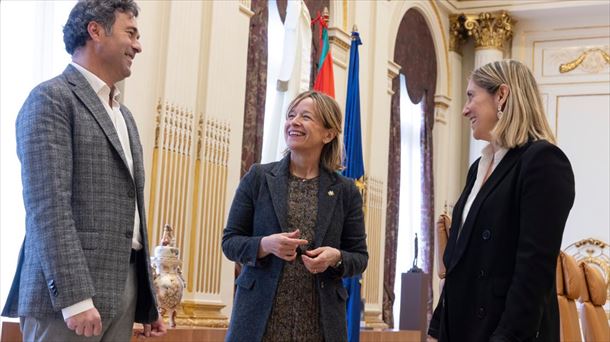It is now more than four years since about half a million people signed the second women’s referendum (official name: women’s referendum 2.0). They demanded greater protection against violence, a reduction of working hours to 30 hours per week with equal pay and equal staff, and childcare throughout the day and year round. Have these concerns been addressed and what about equality under the turquoise-green coalition? krone.at asked the chairmen Lena Jäger and Daniela Diesner.
In 2018, politicians such as former ÖVP vice-chancellor Reinhold Mitterlehner and former minister of women’s affairs Maria Rauch-Kallat (ÖVP) signed the women’s referendum. No request has been made to date. The discussion in the National Council was terrible, says Daniela Diesner. Each side briefly explained its position, much was already known and there was little more than a few lip service. As a reminder, Austria then had a black-blue coalition under Chancellor Sebastian Kurz (ÖVP).
Swap with politicians today
More than four years later, the board of the women’s people’s initiative still consists of six people, while others can fall back on specific matters. One of the most important tasks is still to exchange ideas with political representatives. Besides the FPÖ, there are contacts with all parties, says Lena Jäger. However, invitations from this party have also been accepted in the past and part of the exchange has been constructive.
In state elections, women’s referendum activists ask why 50 percent of the voters aren’t women and whether there aren’t more qualified women for the post. In addition, they issue press releases about their concerns, organize round tables and other events – for example around the International Day against Violence against Women on November 25. They recently designed an aep information booklet about free contraceptives and abortions.
Always comes back
The women’s referendum also cooperates with other projects of the civilian population, such as the climate referendum and the animal protection referendum. “Changes in gender equality discourses have never emerged from politics alone, in fact they have always been initiated by various social initiatives,” says Jäger. She remembers that in the 1970s women joined forces in this country to be allowed to have their own bank account and to make abortion possible.
For 30 years, however, equality between women and men has stood still. “It was such a highlight. Since then, the feeling has spread that we have already achieved everything. We can see that this is not the case, for example, by the fact that we have a huge difference in pensions and a difference in salary.” For example, women are more affected by violence, poverty and increasingly less recognition at work than their male colleagues.
On the one hand, the change of government to the turquoise-green coalition “has brought incredible benefits” such as a higher women’s budget and more work against male violence, on the other hand, the activists repeatedly fought against setbacks. Diesner cites sex education in schools as an example that should be restricted, but that both consider important for physical self-determination.
One requirement is not more important than the other
The nine demands of the women’s citizens’ initiative can be divided into three levels: economic, social and physical self-determination. According to Jäger and Diesner, one is not more important than the other, because they interact. For example, as a woman to be able to leave her abusive partner, financial independence is important and she needs reliable childcare to be able to work.
Feminists currently need to get involved in the inflation debate, says Jäger, especially since distribution issues are feminist. This is tangible content and practical access. She has repeatedly asked people in the past, “If women only get half of men’s pensions, doesn’t that mean their working life was only worth half?” or “Do you think men and women are worth the same?
Emotions ran high
Most answered the second question in the affirmative and then stood in the street as leaflets for the women’s referendum were handed out. However, Jäger clearly remembers a woman who said no, since men would do the heavier work and she ‘just’ raised children. The older woman was very hard on herself, so Jäger was shocked by her self-image and told her that her contribution to raising children was also worth it. The time when signatures were collected was actually very emotional.
Today, Jäger and Diesner consider it conceivable that they could get more than half a million signatures for their concerns. For example, the economic situation had become even more urgent and people had come forward several times because of later initiatives who still wanted to sign the women’s initiative.
This is no longer possible, but interested parties can register as a volunteer. We are looking for two people for the board of directors. The condition is that you want to tackle it, not just think along.
Source: Krone
I am Ida Scott, a journalist and content author with a passion for uncovering the truth. I have been writing professionally for Today Times Live since 2020 and specialize in political news. My career began when I was just 17; I had already developed a knack for research and an eye for detail which made me stand out from my peers.



